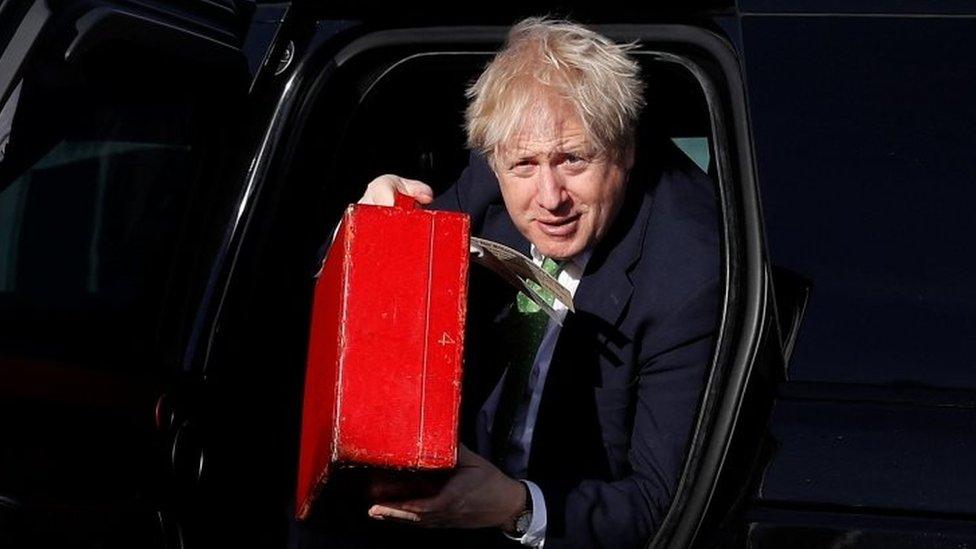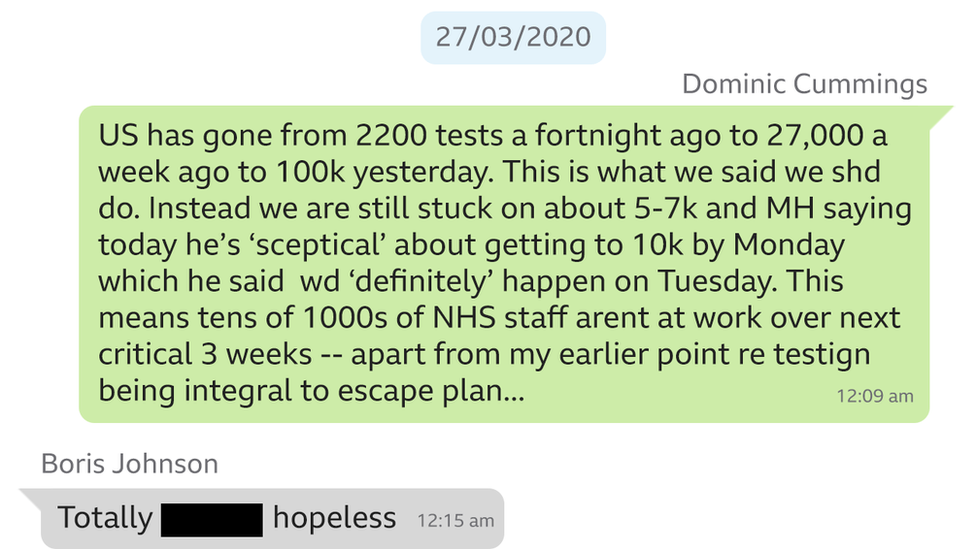Boris Johnson gets summaries of sensitive government material via WhatsApp
- Published

Boris Johnson carries official documents in a briefcase known as a red box
Boris Johnson gets details of vital government business sent to him via WhatsApp, court papers have revealed.
The material, from the PM's ministerial "red box", is sent to his phone for "administrative ease", officials say, and does not break the rules.
But campaigners challenging "government by WhatsApp" in the High Court say it is a security risk.
They claim the use of insecure apps and message deletion by ministers and officials is "rampant".
Campaigning law groups the Good Law Project and Foxglove are challenging the government's use of such services in the High Court, saying that it breaks the law on keeping public records.
The government says it has secure channels for exchanging sensitive information, and ministers are obliged to record important decision-making discussions with officials.
'Private device'
Documents released on the first of a three-day judicial review reveal:
From November 2020 onwards, Boris Johnson has been sent a summary of "red box" material, including diary updates, via WhatsApp
The PM and other senior ministers downloaded Signal - an app that can instantly delete messages - to their phones. Signal has now been removed from Mr Johnson's device and the No 10 app store
At least one of the six Cabinet Office senior civil servants used Signal on their private device to communicate with colleagues
No official record has been made of the WhatsApp messages screenshot by former aide Dominic Cummings, revealing March 2020 discussions about Covid
The screenshot messages, published by Mr Cummings on his blog, include discussions with the PM on the procurement of ventilators, testing in care homes, and Mr Johnson's description of then health secretary Matt Hancock as "hopeless".

No official record has been kept of these messages
It also emerged that all messages on Boris Johnson's phone were wiped in April 2021, after it emerged his number had been freely available on the internet for 15 years.
In a witness statement, the Cabinet Office's chief operating officer Sarah Harrison said: "In light of a well-publicised security breach, the prime minister implemented security advice relating to a mobile device. The effect was that historic messages were no longer available to search and the phone is not active."
'Thin air'
Legal campaigners say records of vital decision-making have been lost to the public record, which could undermine next year's inquiry into the government's handling of the pandemic.
Cori Crider, director of Foxglove, said: "Our democracy can only work if the decisions of those who represent us are open to scrutiny.
"That can't happen if officials govern by secret WhatsApp chats that vanish into thin air."
Foxglove is bringing the case on behalf of non-profit media group The Citizens.
They say the government is potentially in breach of its own data security guidelines and the Public Records Act of 1958, which requires legal checks to be made on messages in case they need to be kept for the public interest.
The government argues that a record is kept of all substantive discussions and only ephemeral messages are deleted.
In her witness statement, Ms Harrison said: "In my view, it is not realistic to suggest that those working in government should refrain from interacting with one another online in the same way everyone else does, subject always to the compliance with government policy on the use of such tools and in line with information records management policy.
"This is particularly the case where teams are now much more dispersed - between home and the office as well as geographically."
The Foxglove and Good Law Project law suits started out as separate cases but the High Court decided to hear both of them together.
The government is expected to challenge the standing of the Good Law Project in court, after the High Court found against the organisation in a separate case in February.